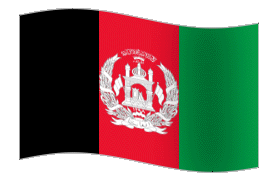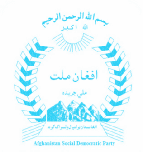Afghan Election and Challenges for Future Leadership
Ajmal Shams
Gulf News (24-
Afghans will be going to presidential polls on 5 April 2014, for the third time since
the Taliban’s collapse in late 2001, to elect President Karzai’s successor. This
election is highly significant for Afghanistan because of several reasons. It will
be the first time ever in Afghan history that power will be peacefully transferred
from one elected president to another. This election is also important because of
its timing. The international security forces shall be leaving the country by the
end of 2014. The fate of the Bilateral Security Agreement (BSA) with the US is still
in limbo. Yet, all presidential candidates have shown their commitment to sign the
BSA as soon as they take office, if elected. Dr. Ashraf Ghani, considered by many
as the front-
Due to the past 30 years of civil war and instability, political parties have virtually lost their popular support base. Thus, they are not the platforms from which presidential candidates run their election campaigns. Instead it is the candidates’ individual identities and programs that attract voters. This election seems to be more about the personal profiles, past achievements and future prospects from candidates that will determine the voters’ choice. However, national agendas presented by contenders will matter for educated and enlightened audience though.
There are many issues at play for candidates as well as voters during this election
campaign; from peace process to BSA to economic development. Yet, one must be cognizant
of the fact that majority of Afghans are not so much bothered about the details of
the candidates agendas. Afghans would rather be more interested in who the candidates
are. Put simply, this election is more about the candidates’ personalities and what
capabilities they and their respective teams will bring to deliver on their election
promises. As a matter of fact, Afghanistan stands at a cross-
The complexity of peace talks with the Taliban are rooted in the fundamental issue
of how Afghanistan and Pakistan will re-
The presidential hopefuls in the current race are mindful of this fact. They are increasingly focused on peace and security as their priorities albeit with varying mindsets, approaches and strategies. Dr. Ghani would like to use his vision for regional economic integration as sustainable stabilizing factor that would eventually transform regionally rivalries into multilateral cooperation. Such evolution in regional politics, Dr. Ghani believes, will pave the way for peace and stability in his own country. Others in the race are also emphasizing the role of economic cooperation in rooting out insurgency in Afghanistan, which is believed to be sponsored from across the border. Except for Dr. Ghani, who has come up with more specific strategy for building up the peace process, other presidential hopefuls seem to be limited on presenting their intellectual capital on how to handle the peace process.
The coming years are supposed to be more difficult than the previous decade. The last decade was more about crisis management. The coming decade has been termed as the decade of transformation. The gains made during the past nearly 12 years must be consolidated by the future leadership and further progress needs to be made in all sectors of national priority. With the fate of BSA being undecided, Afghanistan has to face the harsh reality of dealing with its national economy on its own as foreign aid gradually diminishes and the role of our international partners become less prominent.
Relations with our neighbors are critical component of our foreign policy debate.
Peace and security in Afghanistan are inextricably linked with how our future leadership
transforms the current ambiguity into a constructive and clearly-
No matter how active this election season might be, Afghans’ aspirations will only
come to fruition, if President Karzai ensures a free and fair election in the real
sense. Favoring one candidate over the rest will set a bad example for the young
Afghan democracy. Being in power for about 12 years, President Karzai and his entire
state machinery bear the onus of keeping the entire election process transparent.
This will enable a peaceful transfer of power to a legitimate successor and President
Karzai will go down in history as someone who made this transition possible. The
upcoming election is also a test for the entire nation and its fledgling democracy
that still has a long way to mature. (Courtesy: Gulf News -
The writer is President of the Afghanistan Social Democratic Party well know as Afghan Millat National Progressive Party and is based in Kabul, Afghanistan. He also served as Policy Advisor to Presidential Candidate Dr. Ashraf Ghani.
دافغان ملت ملي مترقي ګوند

Afghanistan Social Democratic Party

Copyright © Afghan Millat 2007-